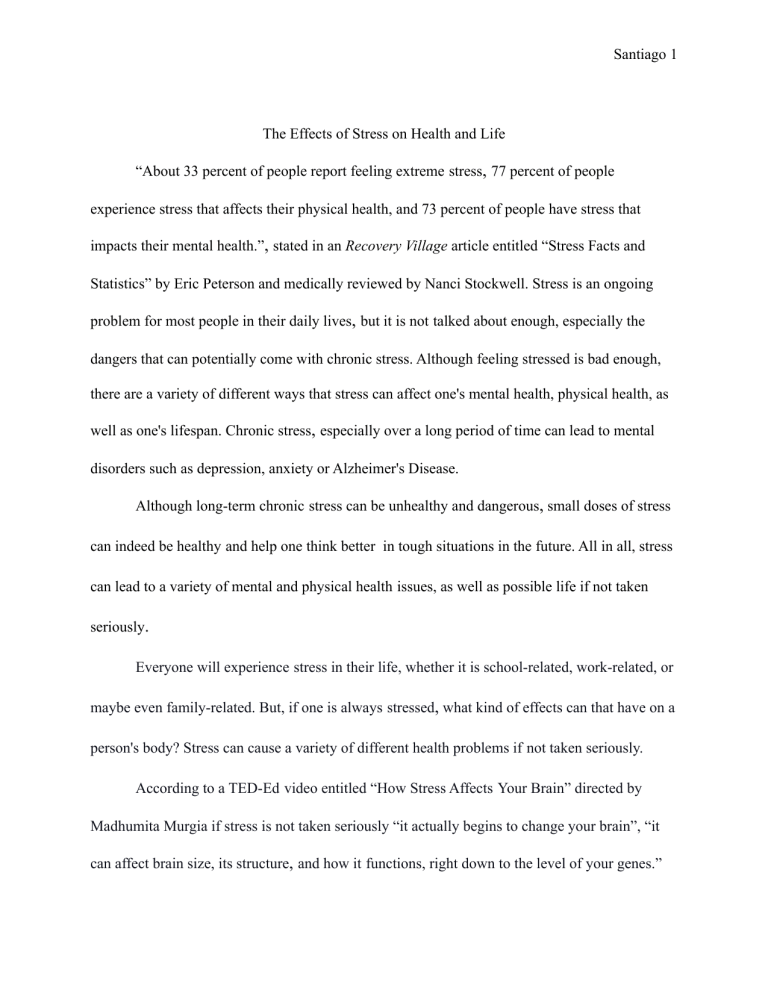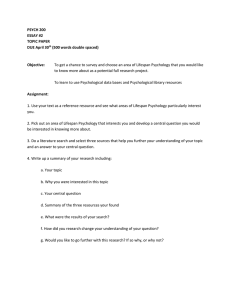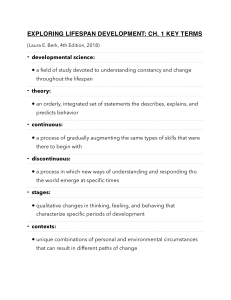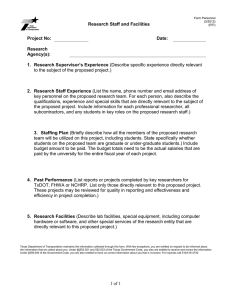
Santiago 1 The Effects of Stress on Health and Life “About 33 percent of people report feeling extreme stress, 77 percent of people experience stress that affects their physical health, and 73 percent of people have stress that impacts their mental health.”, stated in an Recovery Village article entitled “Stress Facts and Statistics” by Eric Peterson and medically reviewed by Nanci Stockwell. Stress is an ongoing problem for most people in their daily lives, but it is not talked about enough, especially the dangers that can potentially come with chronic stress. Although feeling stressed is bad enough, there are a variety of different ways that stress can affect one's mental health, physical health, as well as one's lifespan. Chronic stress, especially over a long period of time can lead to mental disorders such as depression, anxiety or Alzheimer's Disease. Although long-term chronic stress can be unhealthy and dangerous, small doses of stress can indeed be healthy and help one think better in tough situations in the future. All in all, stress can lead to a variety of mental and physical health issues, as well as possible life if not taken seriously. Everyone will experience stress in their life, whether it is school-related, work-related, or maybe even family-related. But, if one is always stressed, what kind of effects can that have on a person's body? Stress can cause a variety of different health problems if not taken seriously. According to a TED-Ed video entitled “How Stress Affects Your Brain” directed by Madhumita Murgia if stress is not taken seriously “it actually begins to change your brain”, “it can affect brain size, its structure, and how it functions, right down to the level of your genes.” Santiago 2 This is because when stressed, the human body releases a hormone called cortisol. According to Murgia, “high levels of cortisol over a long period of time wreak havoc on your brain.” Murgia explains all of the effects that cortisol can cause, which includes the shrinking in size of your brain, the loss of synaptic connections between neurons, and the shrinking of the prefrontal cortex. All of these effects on the brain matter as it can lead to few brain cells being made, which results in it making it harder to learn or remember things. This is also almost like a gateway to more serious mental problems, like depression, anxiety, Alzheimer's disease and more. Which will be mentioned more in depth later. This shows how stress can seriously affect your body physically if not treated properly. It is not only the brain that can be affected though. There are other physical changes that one's body may have if stress is a continuous thing in everyday life. In the 2018 American Psychological Association article entitled “Stress Effects on the Body”, the main focus is how stress negatively affects the body physically and the actions one can take to avoid or improve these problems. This article focuses on how “Our bodies are well equipped to handle stress in small doses, but when that stress becomes long-term or chronic, it can have serious effects on your body.” The effects stress can have on the body include the musculoskeletal system, respiratory system, cardiovascular system, endocrine system, gastrointestinal system, nervous system, reproductive system, and so much more. One way stress can affect the musculoskeletal system is due to when the muscles tense up. The American Psychological Association explains how muscle tension can be linked to back pain and even cause migraine headaches and Santiago 3 tension-type headaches. For the cardiovascular system, the same article explains how “The consistent and ongoing increase in heart rate, and the elevated levels of stress hormones and of blood pressure, can take a toll on the body.” This can lead to the risk for hypertension, a stroke, or even a heart attack. In Thrope’s The American Institute of Stress article entitled “How Does Stress Affect Your Body? The Latest Research Shows It Can Vary”, Thrope lists the multiple different ways stress can affect your body physically. Another way stress can affect your body is by not being able to get enough sleep. According to the article mentioned above “Stress prevents the mind from relaxing, making sleep next to impossible.” This can be a problem as sleep deprivation can impair one's thinking and ability to function throughout the day. Another way stress can affect the body physically includes gut health. Many people when stressed or anxious feel gurgles in their stomach, which is natural. This is because the digestive system can sometimes be very sensitive to one emotion, stress being one of them. The American Institute of Stress article entitled “How Does Stress Affect Your Body? The Latest Research Shows It Can Vary” by Thrope says that “stress can damage the microbiome that helps the gut function, though the effects of stress can differ widely from person to person. Everybody from indigestion, nausea, and vomiting to constipation can be traced to stress and its effect on the gut.” In simpler terms means that stress can affect the way the gut functions, which can cause nausea, vomiting etc. Along with how stress can affect human bodies health, stress also affects men and women's bodies differently. Starting off with the male reproductive system, as mentioned before Santiago 4 cortisol has a lot to do with stress. In the 2018 American Psychological Association article entitled “Stress Effects on the Body”, “Excess amounts of cortisol can affect the normal biochemical functioning of the male reproductive system.” The same article also mentions that stress can reduce levels of testosterone, causing a decline in sex drive and in some cases erectile dysfunction. This article also talks about how stress can negatively affect sperm production, which can cause issues for couples who are trying to conceive. Clearly there are many ways stress can cause problems to the male reproductive system, which can lead to bigger problems overall. Moving forward to how stress can affect women's reproductive system, there are some similarities to men. One of these similarities being that stressed women may have a reduced sexual desire too, according to the same article by the American Psychological Association. Another similarity that men and women have in common with this topic is that women can have trouble conceiving as well. Although, if already pregnant, the same article emphasizes that “maternal stress can negatively impact fetal and ongoing childhood development and disrupt bonding with the baby in the weeks and months following delivery.” Moving on, to some of the differences between men and women, one being that women's menstruation can be affected by stress. The 2018 American Psychological Association article entitled “Stress Effects on the Body” states that “high levels of stress may be associated with absent or irregular menstrual cycles, more painful periods, and changes in the length of cycles.” Lastly, the American Psychological Association article says that “When stress is high, there is an increased chance of Santiago 5 exacerbation of symptoms of reproductive disease states, such as herpes simplex virus or polycystic ovarian syndrome.” To sum things up, stress can have major effects on a woman's reproductive system, including menstruation, the ability to conceive, sexual desire and has a higher chance of reproductive diseases. As mentioned before, there are so many ways that stress can affect the body, the list goes on and on. Just like there are different effects of stress on men and women, there are different effects of stress on adults and kids. In Jennifer Graham’s, Journal of Behavioral Medicine article entitled “Stress, Age, and Immune Function: Toward a Lifespan Approach.”, Graham talks about some of these differences between adults and adolescents. Stress can have a big impact on adolescents as Graham writes “For children, exposure to frequent family conflict and aggression may disrupt functioning of the two primary hormonal systems governing the stress response, the sympathetic-adrenomedullary (SAM) and hypothalamic-pituitary-adrenocortical (HPA) axes, increasing sensitivity to stress throughout the lifespan.” This basically means that children that can have stress due to family issues, can be affected physically, as well as be more sensitive to stress in their adult life, compared to others who did not have the same experience growing up. This is once again started when Graham writes “individuals who experience childhood trauma or abuse show greater stress hormone responses to acute stress in adulthood.” Moving on to how stress affects adults compared to adolescents, Graham mentions that “psychological stress can both mimic and exacerbate the effects of aging, with older adults often showing greater immunological impairment to stress than younger adults.” In simpler terms, older adults are more often immunologically impaired compared to younger adults, when dealing Santiago 6 with stress. Adults are also more at risk for infection when compared to adolescents. Graham explains “The age-related immune changes described above put older adults at much greater risk of impairment and death from infection, such as from influenza or pneumonia.” This simply gives some examples of how adults are at a higher risk for infection than adolescents are. Not only does stress affect the body physically, but it also has a big impact on the body mentally. This can be a big issue as not being mentally healthy can make everyday tasks a lot harder or even impact one's motivation to do said tasks. In Neil Schneiderman, Gail Ironson, and Scott D. Siegel’s National Library of Medicine article entitled “Stress and Health: Psychological, Behavioral, and Biological Determinants” the authors go through and list multiple mental disorders and diseases that can be caused by stress. One of these mental disorders include depression, as “there is evidence that stressful life events are causal for the onset of depression” stated in the National Library of Medicine article entitled “Stress and Health: Psychological, Behavioral, and Biological Determinants”. Another disorder that can be caused by stress is anxiety. The authors explain how anxiety is usually diagnosed before depression and that most patients that are diagnosed with anxiety are likely to be diagnosed with depression after stressful events. The same article also includes the fact that “Exposure to intense and chronic stressors during the developmental years has long-lasting neurobiological effects and puts one at increased risk for anxiety and mood disorders, aggressive dyscontrol problems, hypo-immune dysfunction, medical morbidity, structural changes in the CNS, and early death.” Along with this, in Pia Schönfeld's National Santiago 7 Library of Medicine article entitled “The effects of daily stress on positive and negative mental health: Mediation through self-efficacy”, a study is done to determine the positive and negative effects of stress on mental health. In this study Schönfeld found symptoms of depression, anxiety were found in stressed people. It is obviously clear that stress can have a massive impact on one's mental health, since stress can cause a variety of different mental disorders. After talking about all of the negative effects that stress can have on a person physically and mentally, it is safe to say that stress can have an effect on a person's lifespan. In Bill Hathaway’s Yale News Article entitled “Stress Makes Life’s Clock Tick Faster - Chilling out Slows It Down”, a study is done with 444 people with a variety of different ages, to study their blood samples as well as answer a questionnaire on stress. After eliminating certain factors “researchers found that those who scored high on measures related to chronic stress exhibited accelerated aging markers and physiological changes such as increased insulin resistance.” In other terms this means that those who experienced stress showed faster aging and bodily changes. However, the study also found that those who had a better grasp at self-control and regulating their emotions were more resilient to the effects stress had on them. As the author stated, “the more psychologically resilient the subject, the higher the likelihood they would live a longer and healthier life.” This shows how stress can affect one's lifespan, while also giving information on how being able to handle stress can lead one to have a happy and healthier life in the long run. As well as causing physical harm to one's body, such as heart disease, the responsiveness of both the immune system and nervous system, and so much more. With the Santiago 8 combination of all the aforementioned health issues, this can cause faster aging, which can lead to a shorter lifespan. In a Translational Psychiatry article entitled “Psychological and biological resilience modulates the effects of stress on epigenetic aging”, there is a hypothesis that “stress is positively associated with accelerated biological aging”, which is “measured via GrimAge Acceleration (GAA), and that this relationship will be mediated by stress-related physiologic changes such as insulin and HPA signaling.” GrimAge is a predictor of mortality, which is being used here to show how stress can affect one's lifespan. After doing their own study, the results came back to show that “there was a high association between individuals’ chronologic age and GrimAge.” This shows that chronic stress over a long period of time can cause one to age faster, therefore resulting in a shorter lifespan. In order to live a healthier, happier, and longer life, there should be more urgency in caring for stress. Although there are many cons to stress and what it can cause, is stress only bad? Daniela Kaufer, who is an associate professor at UC Berkeley who studies the biology of stress mentions that “The stress response is designed to help us react when something potentially threatening happens, to help us deal with it and learn from it.”, in a Greater Good Magazine article entitled Santiago 9 “The Surprising Benefits of Stress.” In other terms, stress can help one deal with threatening situations better than if they had not dealt with stress before. Kaufer also mentions how “short-lived stress can improve alertness and performance and boost memory.” showing there are a few positive aspects to stress. In Pia Schönfeld's National Library of Medicine article entitled “The effects of daily stress on positive and negative mental health: Mediation through self-efficacy”, he also talks about stress being helpful in certain situations as he emphasizes “Self-efficacy is a positive resistance resource that is part of the cognitive appraisal process and essential for the regulation of stress (Bandura, 1992, Bisschop et al., 2004). It refers to an individual's capabilities to perform appropriately in challenging situations.” Meaning stress can be helpful in the future for some people, as it may be the reason they have a good memory or concentration. So although stress does have many bad effects on physical and mental health if not treated, stress in small doses can have some positive effects and be helpful in future-threatening situations. After hearing all of the negative effects that stress can have on the body mentally and physically, one might wonder what actions can be taken in order to prevent high levels of stress or how to deal with stress overall. As mentioned before, when stressed the human body releases a hormone called cortisol which can have major effects on the brain. Well, in the TED-Ed video entitled “How Stress Affects Your Brain” directed by Madhumita Murgia there are a few different ways to “reverse what cortisol does to your stressed brain.” These activities include exercise and meditation. The reason these activities can help is because they both include deep Santiago 10 breathing and being aware of one's surroundings. With these activities decreasing stress, it can increase the size of the hippocampus in the brain, which can lead to better memory. There are other options as well, such as maintaining a healthy group of people for social support, as well as getting a proper amount of sleep each night, which is recommended by the American Psychological Association article entitled “Stress Effects on the Body.” All in all, there are many ways to help limit the amount of stress one feels. Above all, stress can potentially be a major issue to mental health, physical health, and lead to a shorter lifespan. Stress if not treated can lead to a multitude of mental health issues which include but is not limited to depression or anxiety for example. Along with mental health issues, stress if not treated can lead to an ongoing list of physical health issues with the musculoskeletal system, respiratory system, cardiovascular system, endocrine system, gastrointestinal system, nervous system, reproductive system, and others. The combination of all these mental health issues and physical health issues can lead to a shorter lifespan. With all of these health issues, it can cause people to age faster, which then leads to a shorter life span. Although there are a few positive effects that stress can have, it is only possible in small doses of stressful situations. It is better to stay as far away from stress as possible, as it is not worth all of the potential health risks that can come with stress. As Madhumita Murgia mentioned in her TED-Ed video entitled “How Stress Affects Your Brain”, “Get in control of your stress before it takes control of you.” Santiago 11 Work Cited Patterson, Eric. “Stress Facts, Statistics and Trends: The Recovery Village.” The Recovery Village Drug and Alcohol Rehab, 5 Aug. 2021, Santiago 12 https://www.therecoveryvillage.com/mental-health/stress/related/stress-statistics/#: ~:text=According%20to%20The%20American%20Institute,that%20impacts%20th eir%20mental%20health. Accessed 20, April 2022. Murgia, Madumita. “How Stress Affects Your Brain”. TED-Ed, 2015. Accessed 20 April, 2022. “Stress Effects on the Body.” American Psychological Association, American Psychological Association, 1 Nov. 2018, https://www.apa.org/topics/stress/body. Accessed 20 April, 2022. Peter Jaret “The Surprising Benefits of Stress.” Greater Good, 20 Oct. 2015, https://greatergood.berkeley.edu/article/item/the_surprising_benefits_of_stress#:~:t ext=Manageable%20street%20 increases%20alertness%20and,an%20adaptive%20point%20of%20view, Accessed 20 April, 2022. Schönfeld, Pia, et al. “The Effects of Daily Stress on Positive and Negative Mental Health: Mediation through Self-Efficacy.” International Journal of Clinical and Health Psychology : IJCHP, Asociacion Espanola De Psicologia Conductual, 30 Oct. 2015, https://www.ncbi.nlm.nih.gov/pmc/articles/PMC6225043/, Accessed 20 April, 2022. Schneiderman, Neil, et al. “Stress and Health: Psychological, Behavioral, and Biological Determinants” Annual Review of Clinical Psychology, U.S. National Library of Santiago 13 Medicine, 2005, https://www.ncbi.nlm.nih.gov/pmc/articles/PMC2568977/, Accessed 20 April, 2022. Hathaway, Bill. “Stress Makes Life's Clock Tick Faster - Chilling out Slows It Down.” YaleNews, 14 Dec. 2021, https://news.yale.edu/2021/12/06/stress-makes-lifes-clock-tick-faster-chilling-out-sl ows-it-down, Accessed 20 April, 2022. Harvanek, Z.M., Fogelman, N., Xu, K. et al. “Psychological and biological resilience modulates the effects of stress on epigenetic aging”. Transl Psychiatry 11, 601 (2021). https://doi.org/10.1038/s41398-021-01735-7, Accessed 20 April, 2022. Thrope, JR. “How Does Stress Affect Your Body? The Latest Research Shows It Can Vary.” The American Institute of Stress, 10 Feb. 2020, https://www.stress.org/how-does-stress-affect-your-body-the-latest-research-showsit-can-vary Accessed 20 April, 2022 Graham, Jennifer E, et al. “Stress, Age, and Immune Function: Toward a Lifespan Approach.” Journal of Behavioral Medicine, U.S. National Library of Medicine, Aug. 2006, https://www.ncbi.nlm.nih.gov/pmc/articles/PMC2805089/, Accessed 20 April, 2022.





